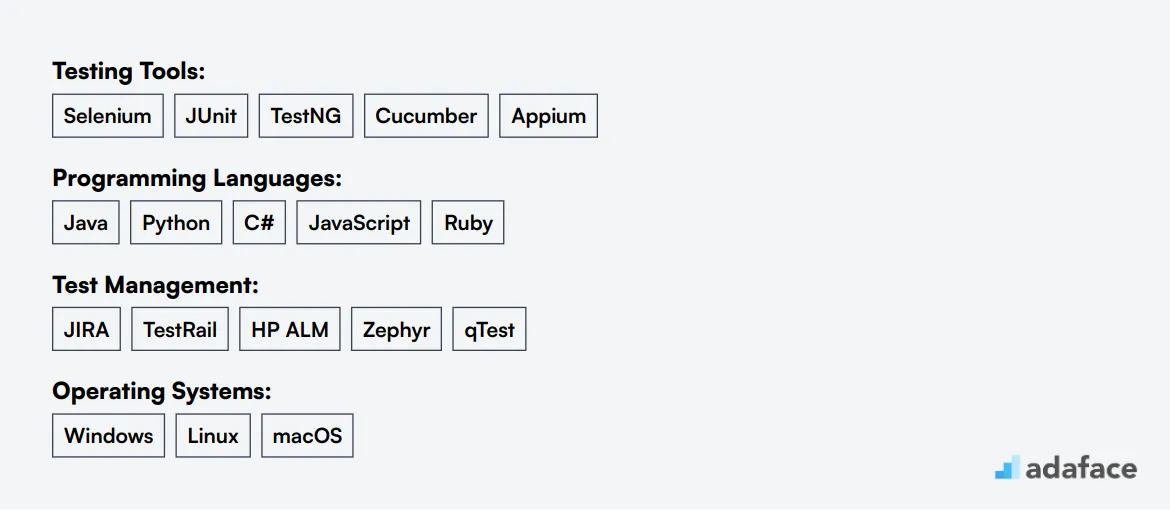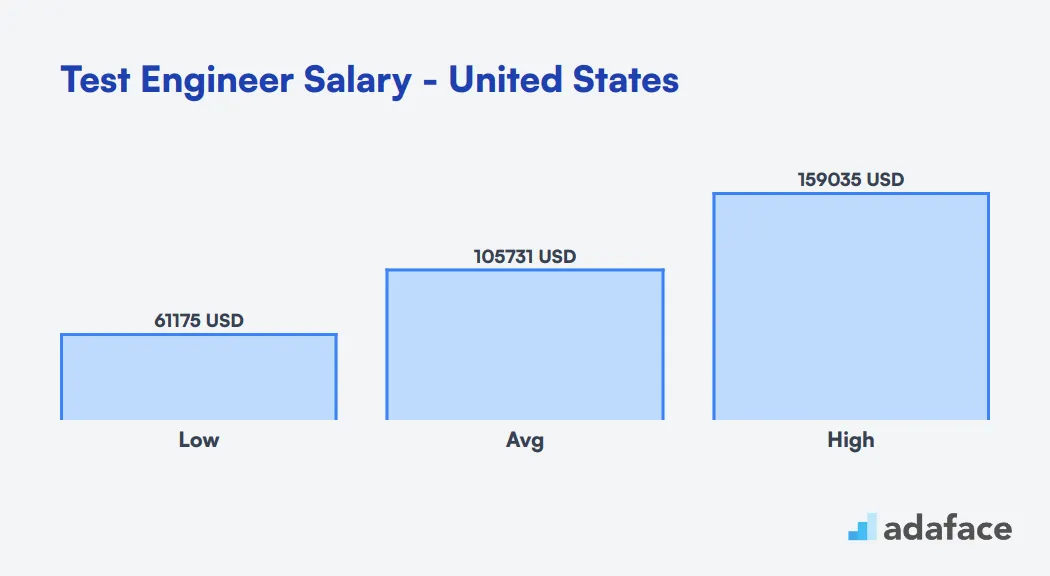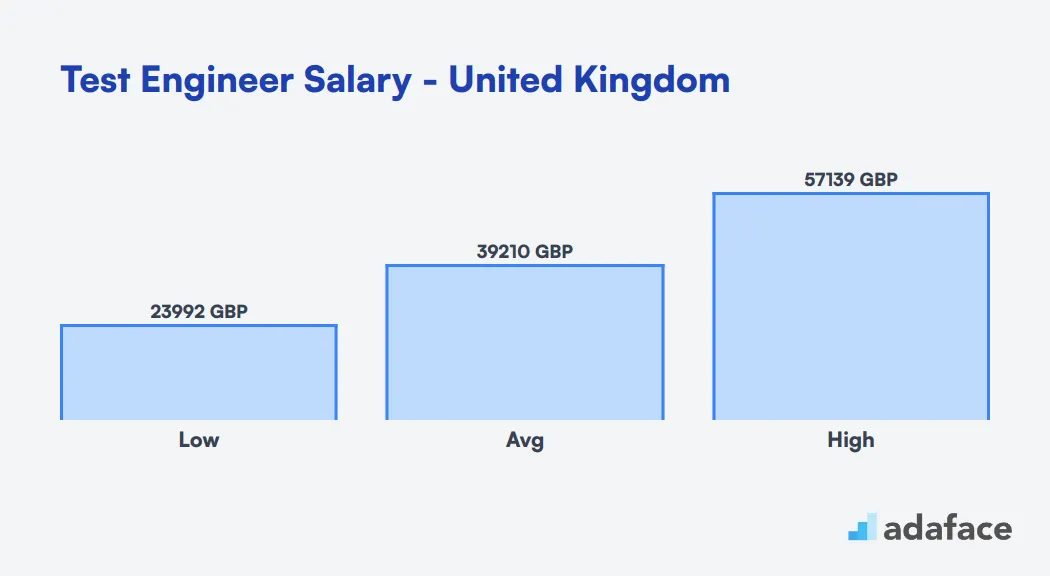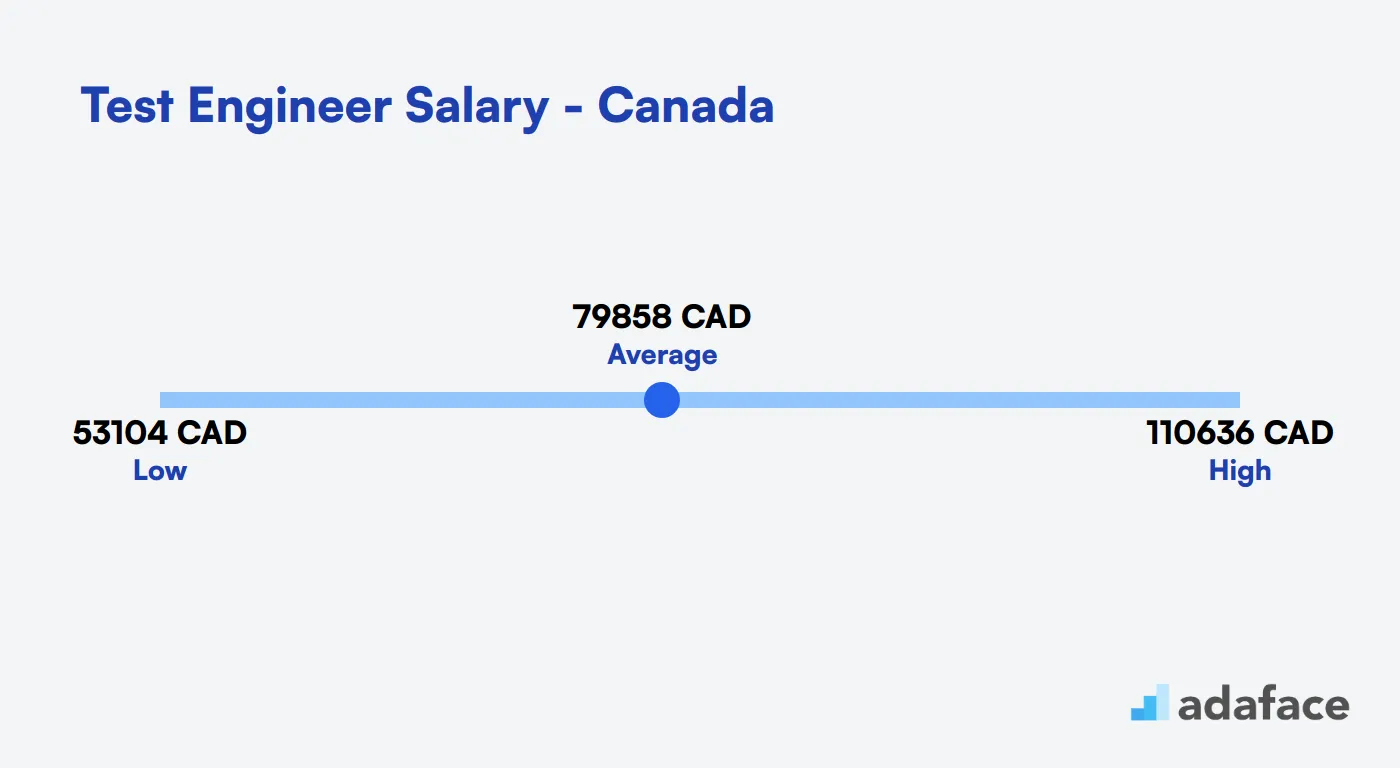As a recruiter or hiring manager, finding the right Test Engineer can be a challenging task. Many companies underestimate the importance of this role in ensuring software quality and reliability. A skilled Test Engineer not only identifies bugs but also improves the overall development process, saving time and resources in the long run. However, hiring managers often struggle to identify candidates with the right mix of technical skills, analytical thinking, and communication abilities.
This guide will walk you through the process of hiring a top-notch Test Engineer, from understanding the role to conducting effective interviews. We'll cover key aspects of the Test Engineer job description, essential skills to look for, and how to use pre-employment screening tests to evaluate candidates effectively.
Table of contents
What Does a Test Engineer Do?
Test Engineers play a key role in ensuring that software products are reliable, user-friendly, and bug-free before they reach customers. They are responsible for designing and executing tests to identify issues in software applications and ensuring the final product meets quality standards.
Day-to-day tasks of a Test Engineer include:
- Designing and developing test plans and test cases.
- Executing tests and documenting the results.
- Collaborating with developers to troubleshoot and resolve issues.
- Maintaining automated testing frameworks.
- Continuously improving testing processes to enhance software quality.
For more insights on the skills required for a Test Engineer, visit our detailed guide.
Test Engineer Hiring Process
Hiring a test engineer requires a structured process to identify and onboard the right talent. This process generally takes between 1 to 2 months, depending on the efficiency of each stage.
- Job Description: Begin by crafting a detailed test engineer job description. Post it on job boards and your company website to attract potential candidates.
- Resume Screening: Collect applications and shortlist candidates based on skills and experience. Expect resumes to start coming in within the first week.
- Skill Assessment: Use online assessment platforms to evaluate technical skills through coding tests or other relevant assessments. Allocate about a week for this stage.
- Interviews: Conduct technical and behavioral interviews to assess candidates' problem-solving abilities and cultural fit.
- Offer and Onboarding: Once the ideal candidate is selected, proceed to the offer stage and set up an onboarding plan.
Overall, the process involves multiple stages of screening and evaluation to ensure you hire the right candidate. We'll now explore each of these steps in detail to guide you through a seamless hiring journey.
Defining the Ideal Test Engineer Profile
Hiring a Test Engineer can be tricky due to the variety of skills and qualifications that may differ across organizations. What is considered essential by one company could merely be a nice-to-have for another, leading to potential mismatches in candidate expectations.
When building your candidate profile, it's important to distinguish between required and preferred qualifications. This will help streamline your hiring process and ensure you attract candidates who not only meet your baseline criteria but also possess valuable additional skills.
| Required skills and qualifications | Preferred skills and qualifications |
|---|---|
| Bachelor's degree in Computer Science, Engineering, or a related field | Experience with automated testing tools |
| Three or more years of experience in test engineering or quality assurance | Knowledge of SQL and scripting |
| Strong knowledge of software QA methodologies, tools, and processes | Experience in Agile/Scrum development process |
| Experience in writing clear, concise, and comprehensive test plans and test cases | Strong analytical and problem-solving skills |
| Hands-on experience with both white box and black box testing | Excellent communication skills and attention to detail |
How to Write an Effective Test Engineer Job Description
Once you've identified the ideal candidate profile for your Test Engineer role, the next step is crafting a compelling job description to attract top talent. Here are some key tips to create a standout Test Engineer job description:
- Highlight specific responsibilities and impact: Clearly outline the day-to-day tasks and long-term projects the Test Engineer will handle. Emphasize how their work contributes to product quality and overall business success.
- Balance technical requirements with soft skills: List necessary technical skills like programming languages and testing tools, but also emphasize soft skills such as problem-solving, attention to detail, and team collaboration.
- Showcase your company culture and growth opportunities: Highlight what makes your organization unique, such as innovative projects, learning opportunities, or a supportive work environment. This helps attract candidates who align with your company values.
- Be clear about required qualifications: Specify must-have qualifications like education, years of experience, and certifications. This helps candidates self-assess their fit for the role before applying.
Top Platforms to Hire Test Engineers
Now that we have a detailed job description in hand, it’s time to list the position on popular job sites to attract potential candidates. Choosing the right platform can significantly impact your ability to find qualified test engineers who meet your requirements.
Indeed
Ideal for finding full-time test engineers due to its wide reach and variety of job seekers across the United States.

Great for leveraging professional networks to find experienced test engineers and for posting detailed job descriptions.

Upwork
Best for hiring freelance test engineers for short-term or project-based work with a flexible budget.

To get started, consider using platforms like Indeed, which offers a wide reach for full-time roles, and LinkedIn, ideal for professional networking. Other strong options include Upwork for freelance positions and FlexJobs for remote opportunities. Each of these platforms has its unique strengths, catering to different needs in the hiring process.
How to Screen Test Engineer Resumes?
Screening resumes is key in hiring test engineers to swiftly narrow down potential candidates for further evaluation. It helps focus on applicants whose skills align with the job requirements, saving time and resources in the hiring process.

When manually screening resumes, look for keywords related to the role. Focus on qualifications such as 'Bachelor's degree in Computer Science', 'software QA methodologies', and 'test plans'. Skills like 'Selenium', 'JUnit', and 'test management tools' like 'JIRA' are also important indicators of suitability.
A modern approach is using AI language models to assist in screening. These tools can help match resumes with job descriptions by identifying relevant keywords and providing a score based on the match. Consider using platforms that automate this task to improve accuracy and reduce manual effort.
Here's an example prompt to guide AI screening:
TASK: Screen resumes to match job description for test engineer role
INPUT: Resumes
OUTPUT: For each resume, provide following information:
- Email id
- Name
- Matching keywords
- Score (out of 10 based on keywords matched)
- Recommendation (detailed recommendation of whether to shortlist this candidate or not)
- Shortlist (Yes, No or Maybe)
RULES:
- If you are unsure about a candidate's fit, put the candidate as Maybe instead of No
- Keep recommendation crisp and to the point.
KEYWORDS DATA:
- Testing Tools (Selenium, JUnit, TestNG, Cucumber)
- Programming Languages (Java, Python)
- Management Tools (JIRA, TestRail)
- Test Cases (White box, Black box)
Which skills tests should you use to assess Test Engineers?
To effectively evaluate candidates for a Test Engineer role, integrating skills tests into your hiring process is a smart approach. These tests help ensure that candidates possess the necessary technical abilities and problem-solving skills to succeed in this position. Here are our recommended tests from the Adaface library:
- QA Engineer Test: This test is designed to assess candidates' knowledge in quality assurance practices. It covers test case creation, bug reporting, and understanding testing methodologies, which are key for any Test Engineer.
- Selenium Online Test: For roles involving automation testing, this test evaluates candidates' proficiency with Selenium. It checks their ability to automate web applications and understand automation frameworks.
- Attention to Detail Test: Test Engineers need to spot even the smallest discrepancies in software. This test measures a candidate's ability to notice details, which is crucial in identifying potential issues before they become problematic.
- Problem Solving Test: Test Engineers often face unexpected challenges. This test evaluates how candidates approach and resolve problems, ensuring they can think on their feet and make sound judgments.
- Logical Reasoning Test: Logical reasoning is essential for understanding complex testing scenarios. This test assesses candidates' ability to reason logically and solve problems systematically, which is crucial for effective testing.
Structuring Technical Interviews for Test Engineers
After candidates pass the initial skills tests, it's time for technical interviews to assess their hard skills in depth. While skills tests are great for initial screening, technical interviews help identify the best candidates for the role. Let's look at some sample interview questions to evaluate Test Engineers effectively.
Here are 5-6 example interview questions for Test Engineers:
- Can you explain the difference between black box and white box testing?
- How would you approach testing a new feature in a web application?
- What tools have you used for automated testing, and why did you choose them?
- How do you prioritize test cases when time is limited?
- Can you describe a challenging bug you encountered and how you resolved it?
- How do you ensure test coverage across different browsers and devices?
How Much Does It Cost to Hire a Test Engineer?
The cost of hiring a Test Engineer varies widely based on location, experience, and industry. In the United States, the average salary for a Test Engineer is around $105,732 per year. However, this can range from about $61,000 to $159,000 annually, with tech hubs often offering higher salaries.
Test Engineer Salary United States
In the United States, the average salary for a Test Engineer is approximately $105,732. Salaries can range widely depending on location, from around $61,176 at the lower end to $159,036 at the higher end. Major tech hubs, such as Annapolis Junction, MD, and San Diego, CA, tend to offer higher salaries, often exceeding $120,000 annually.

Test Engineer Salary in the United Kingdom
The average salary for Test Engineers in the United Kingdom ranges from £30,000 to £60,000 per year. Junior Test Engineers typically start around £25,000, while senior roles can command up to £70,000 or more.
Factors affecting salary include experience, location, and industry. Test Engineers in London and the South East often earn higher salaries due to the higher cost of living and concentration of tech companies in these areas.

Test Engineer Salary in Australia
Test Engineers in Australia earn competitive salaries across major cities. The national average salary ranges from AUD 64,382 to AUD 127,802, with a median of AUD 90,709.
Salaries vary by location, with Northern Beaches NSW offering the highest average at AUD 128,499, followed by Sydney at AUD 97,993. Adelaide and Perth offer lower averages at AUD 81,875 and AUD 86,500 respectively.

Test Engineer Salary in Canada
In Canada, Test Engineers earn competitive salaries. The average annual salary for Test Engineers in Canada is approximately CAD 79,859, with a range typically falling between CAD 53,105 and CAD 110,636.
Salaries can vary based on location, with cities like Windsor, ON offering higher median salaries (around CAD 94,137) compared to other major cities. Factors such as experience, skills, and company size also influence the salary range.

What's the difference between a Manual Test Engineer and an Automation Test Engineer?
People often mix up Manual Test Engineers and Automation Test Engineers, but these roles have distinct differences. Both are crucial in software testing, but their approaches and skill sets are quite different.
Manual Test Engineers focus on manual testing. They have basic programming knowledge and use test management tools to manually execute test cases. This approach allows for exploratory and ad-hoc testing but can lead to longer test cycle times and higher long-term costs.
Automation Test Engineers, on the other hand, use test automation. They require advanced programming skills and use automation frameworks like Python or Java to execute automated scripts. This method is ideal for regression and repetitive testing, resulting in faster execution times and lower long-term costs.
To learn more about the necessary skills required for test engineers, you can explore our detailed guide on different roles in the testing domain.
| Manual Test Engineer | Automation Test Engineer | |
|---|---|---|
| Primary Focus | Manual testing | Test automation |
| Technical Skills | Basic programming knowledge | Advanced programming skills |
| Tools | Test management tools | Automation frameworks and tools |
| Test Execution | Manual execution | Automated script execution |
| Test Coverage | Exploratory and ad-hoc testing | Regression and repetitive testing |
| Scripting Languages | Limited or none | Python, Java, JavaScript |
| Test Cycle Time | Longer execution time | Faster execution time |
| Cost Efficiency | Higher long-term cost | Lower long-term cost |
What are the ranks of Test Engineers?
Test Engineers play a critical role in software development, but their ranks and titles can vary across organizations. Understanding these ranks helps in creating a clear career path and setting expectations for both employers and employees.
- Junior Test Engineer: This is an entry-level position for those new to the field. Junior Test Engineers typically assist in creating test cases, executing basic tests, and learning from senior team members.
- Test Engineer: At this level, engineers have a few years of experience. They can independently create test plans, execute complex tests, and may start mentoring junior members.
- Senior Test Engineer: With 5+ years of experience, Senior Test Engineers lead testing efforts for major projects. They often specialize in specific testing areas and contribute to test strategy development.
- Test Lead: Test Leads manage small to medium-sized testing teams. They oversee test planning, resource allocation, and act as a bridge between testers and other stakeholders.
- Test Manager: This role involves managing larger testing departments, setting testing policies, and aligning testing goals with overall business objectives.
- Director of Quality Assurance: At the executive level, this role shapes the organization's overall quality strategy and represents QA interests in high-level decision-making processes.
Hire the Right Test Engineers for Your Needs
Throughout this blog post, we've discussed the various aspects of hiring a test engineer, from understanding their role and defining the ideal candidate profile to crafting effective job descriptions and selecting the appropriate platforms for recruitment. We've covered the nuances between manual and automation test engineers, skills assessment, and technical interview strategies.
The key takeaway from our discussion is the importance of using accurate job descriptions and tailored skills tests to ensure a precise hiring process. Employing the right QA Engineer Test or Selenium Online Test can significantly enhance the hiring quality by accurately assessing your candidates' capabilities. Remember, the right tools and strategies lead to hiring success.
QA Engineer Test
FAQs
Key skills for a Test Engineer include strong analytical abilities, proficiency in testing methodologies, knowledge of programming languages, familiarity with automation tools, excellent problem-solving skills, and effective communication. You can find a detailed list of skills required for Test Engineers here.
To assess a Test Engineer's technical skills, use a combination of methods such as skills assessment tests, coding challenges, and technical interviews. Focus on their knowledge of testing frameworks, ability to write test cases, and understanding of software development processes.
Manual testing involves executing test cases without scripts or tools, relying on the tester's experience and intuition. Automated testing uses scripts and tools to run tests automatically. A well-rounded Test Engineer should be proficient in both, with a strong emphasis on automation skills for efficiency and scalability.
While domain knowledge can be beneficial, it's often not as critical as strong testing fundamentals and adaptability. A skilled Test Engineer can quickly learn domain-specific knowledge on the job. Focus on candidates with a solid testing background and the ability to learn new technologies and business contexts rapidly.
Key questions should cover testing methodologies, experience with automation tools, problem-solving abilities, and communication skills. You can find a comprehensive list of Test Engineer interview questions here to help structure your interview process effectively.
To assess Agile compatibility, ask about their experience with sprint planning, daily stand-ups, and retrospectives. Inquire about how they've handled changing requirements mid-sprint and their approach to continuous integration and delivery. Look for candidates who demonstrate flexibility, collaboration, and a proactive mindset.
Soft skills are crucial for Test Engineers as they often collaborate with developers, product managers, and stakeholders. Key soft skills include clear communication, teamwork, attention to detail, and the ability to explain technical concepts to non-technical team members. These skills are essential for effective bug reporting and fostering a quality-focused culture within the team.

40 min skill tests.
No trick questions.
Accurate shortlisting.
We make it easy for you to find the best candidates in your pipeline with a 40 min skills test.
Try for freeRelated posts
Free resources



